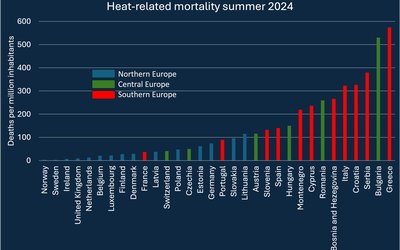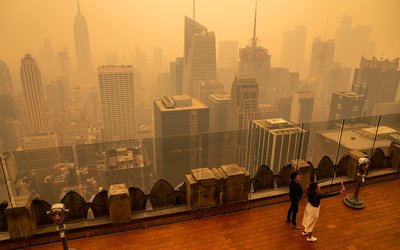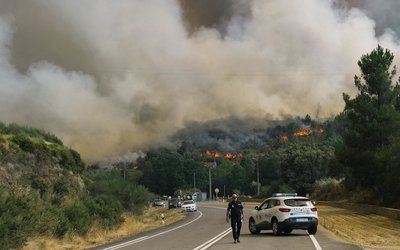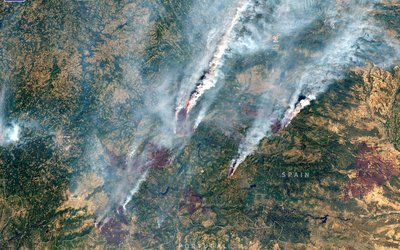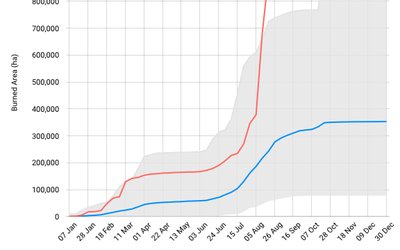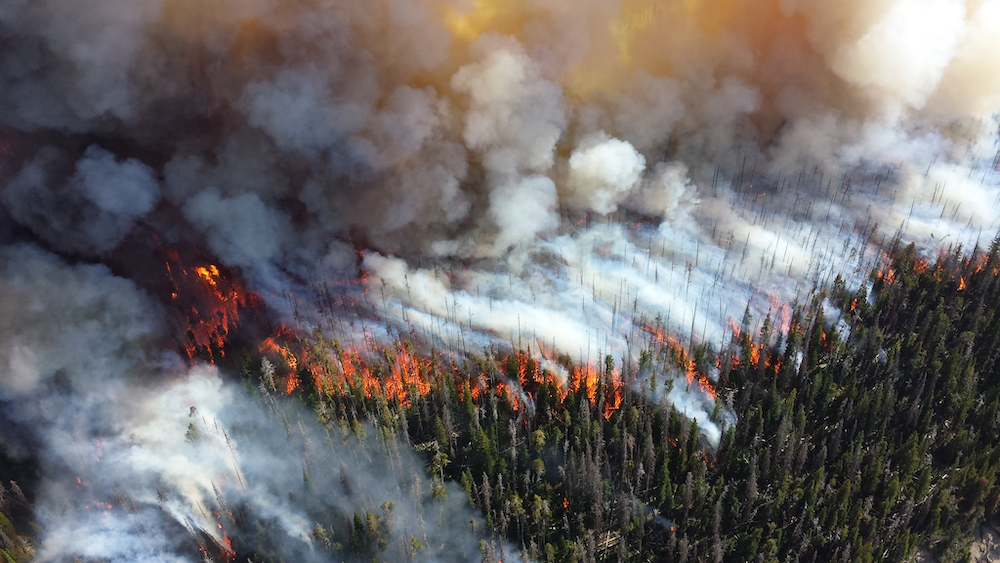
Photo: Wildfire in Yellowstone National Park (Mike Lewelling, National Park Service, www.flickr.com)
Wildfire smoke is more toxic than other particles in the air. Smoke particles smaller than 2.5 micrometre in particular increase mortality. These particles are small enough to enter the lungs and bloodstream, causing heart disease, cancer and respiratory illnesses.
A recent study published in Nature shows that wildfire smoke will kill an estimated 70,000 Americans each year by 2050 if global warming continues at its current rate. This number may be slightly lower in the unlikely event that we manage to drastically slow down climate change and reduce wildfire pollution. The United States is heading towards a situation where wildfire smoke will become one of America’s deadliest climate disasters within 25 years. A large part of this risk originates in Canada.
In economic terms, this death toll amounts to $608 billion in 2050. This is more than all other monetary damages from climate change combined.
This projection is a 73% increase relative to the estimated number of 40,000 annual excess deaths from smoke in recent years. To put things into perspective: heat is currently killing around 2,000 people per year in the United States, according to estimates. The new study suggests that smoke is already far deadlier than rising temperatures.
In the Washington Post, one of the co-authors of this paper stated that their “results provide some of the strongest evidence that a warming climate endangers the lives of U.S. citizens”. According to the New York Times, “pollution from fires, intensified by rising temperatures, is on track to become one of America’s deadliest climate disasters”.
Source:
Qiu et al., 2025. Nature (unedited version published 18 September 2025)


